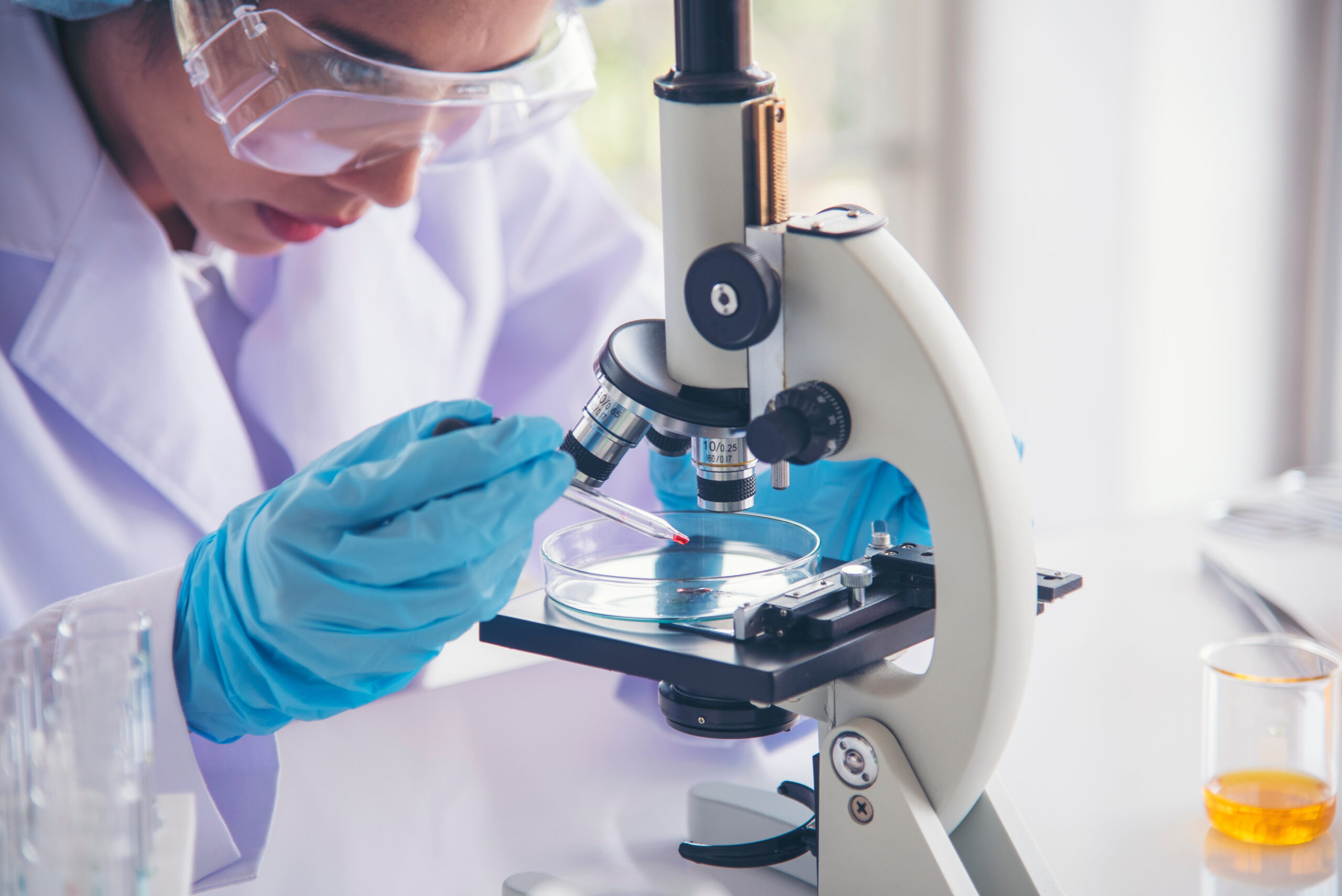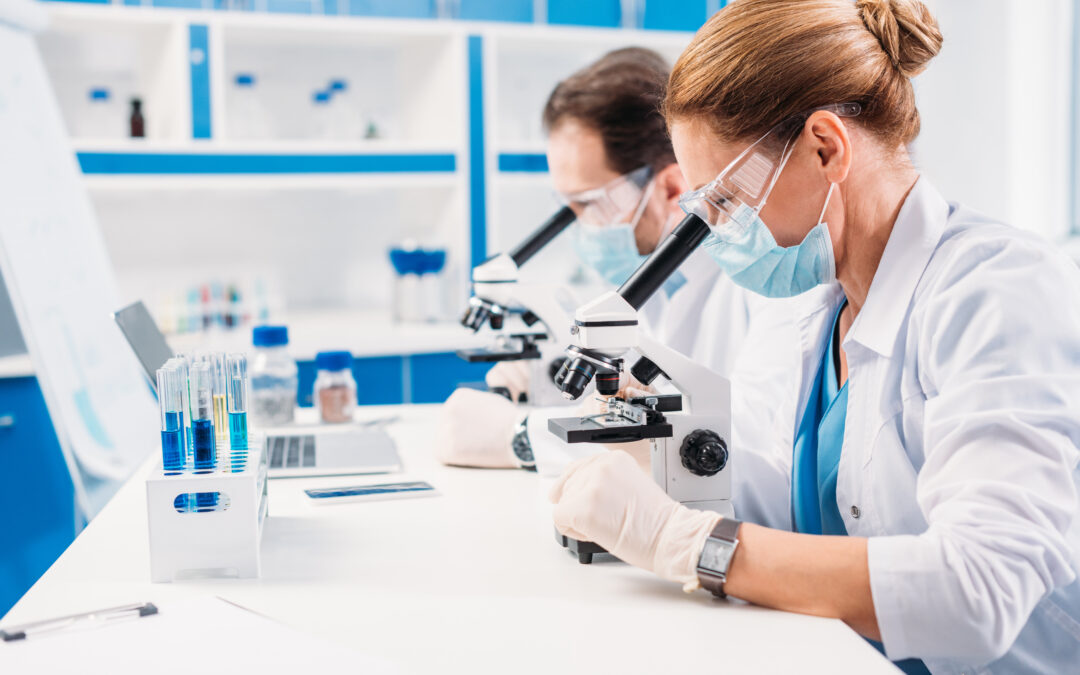
Starting an in-house laboratory can transform your gastroenterology (GI) practice, enabling you to deliver rapid, precise diagnostics right in your office. With recent advancements in molecular testing for gastrointestinal infections, inflammatory markers, and cancer screening, GI specialists can now provide same-day results that enhance patient care and streamline clinical decisions. Cadence Lab Services specializes in turn-key lab business with all the start-up solutions for GI practices, guiding you through every step so you can focus on your patients. If you’re wondering how to start a lab business in your clinic, here’s your 5 phase plan.
How a Molecular Testing La Business Can put You Ahead of Other GI Practices
Molecular testing can turn your practice into a state-of-the-art treatment center that generates sustainable revenue. Traditional stool cultures and serology often take several days to yield results, delaying critical treatment decisions. Today’s PCR-based molecular diagnostics allow for fast, accurate identification of GI pathogens and biomarkers, improving both patient outcomes and workflow efficiency. For gastroenterologists, the benefits include:
- Quicker diagnosis and targeted treatment of GI infections
- Enhanced patient satisfaction and trust
- Improved antibiotic stewardship and resistance monitoring
- New revenue streams for your practice
- Greater control over urgent/stat testing
How an In-House Lab Elevates Your GI Practice
By bringing laboratory testing in-house, your GI practice gains direct oversight of the diagnostic process. This translates to faster turnaround, more reliable results, and the ability to make real-time clinical decisions—often during the same patient visit. Patients benefit from expedited answers and more personalized care, which builds loyalty and trust. Financially, in-house labs allow you to capture reimbursements, improve efficiency, and reduce external lab costs, ultimately strengthening your bottom line.
Phase 1: Expert Consulting for GI Lab Business Start-Up
A successful GI lab launch begins with specialized consulting. Cadence Lab Services provides comprehensive guidance, ensuring your project is compliant and customized to your GI practice’s needs. During this phase, we:
- Assess your current test ordering patterns and patient volume
- Identify high-impact tests for your GI patient population
- Create a tailored plan for your lab’s workflow and financial goals
- Establish a detailed timeline with milestones from site prep to go-live
Our consulting process clarifies every step, so you can confidently move forward without sacrificing clinic time.
Choosing the Right Tests for GI Practices
Modern PCR and molecular assays can detect a wide range of GI pathogens, inflammation markers, and cancer risk factors in a single test. This technology delivers results within hours, supporting swift and accurate treatment decisions.
GI Molecular Testing Give Your an Edge:
- Comprehensive pathogen detection in one panel
- Simultaneous testing for antimicrobial resistance genes
- Rapid reporting—often same-day
Common Molecular Tests for Gastroenterology Practices
|
Test Name |
Typical Use Case |
Avg. Reimbursement (ROI) per Test* |
|
GI Pathogen PCR Panel |
Detects bacterial, viral, and parasitic GI pathogens (e.g., C. difficile, Salmonella, Norovirus, Giardia, E. coli) |
$200 – $400 |
*Reimbursement values are based on average Medicare and commercial insurance rates; actual amounts may vary by region and payer contracts.
Cadence Lab Services offers a complimentary consultation to walk you through the GI lab start-up process and answer your questions. Book your personalized assessment today.
Phase 2: Financial Planning for Your GI Clinical Laboratory
Budgeting for a new lab doesn’t have to be a guessing game. Cadence Lab Services offers a unique two-month “ride-along” analysis, using your own test volumes and billing data to project costs and revenue. This data-driven approach gives you a clear picture of your potential ROI before you commit.
After the trial, we’ll review the results together, so you understand the financial impact and sustainability of your lab. From startup expenses to ongoing reimbursements, our transparent process ensures you make informed decisions. Reach out to schedule your free ROI analysis.
Phase 3: Setting Up Your GI Lab & Meeting Regulatory Standards
Launching a clinical laboratory means meeting rigorous standards for licensure and accreditation, including CLIA, COLA, and CAP. Our team manages the entire compliance process, ensuring your lab meets:
- Facility and equipment regulations
- Staff qualifications and ongoing training
- Quality control and assurance protocols
- Accurate documentation and reporting
We also ensure compliance with OSHA, HIPAA, and local health department policies.
CLIA Certification
All clinical labs must be CLIA-certified. We help you determine your lab’s complexity level, complete the application, and prepare for inspection, guaranteeing your lab is ready for federal oversight.
COLA Accreditation
COLA is a practical option for office-based labs. We handle your application, documentation, and staff preparation, ensuring you meet every requirement for quality and operational excellence.
CAP Accreditation
For GI practices handling significant pathology volumes, CAP sets the gold standard for lab quality. While not mandatory, CAP accreditation highlights your commitment to excellence. We support you through every step, from application to ongoing compliance.
Let Cadence Lab Services manage the regulatory details so you can focus on patient care. Contact us to get started.
Phase 4: Lab Design, Equipment, and Workflow for GI Practices
A well-designed GI lab is essential for efficient, accurate diagnostics. Cadence Lab Services helps you with every aspect—from space planning to equipment calibration and workflow optimization.
Lab Layout and Design
We evaluate your available space and testing volume, then create a floor plan that maximizes efficiency and meets all safety and regulatory requirements. Zones for sample collection, processing, storage, and administration are clearly defined.
Equipment Procurement and Calibration
We recommend and source validated molecular testing platforms, centrifuges, refrigeration, biosafety cabinets, and specialty analyzers tailored to your GI lab’s needs. Our team oversees installation and calibration, ensuring all equipment is compliant and ready to use.
Workflow Optimization for your Lab Business
We help you implement proven protocols for:
- Sample collection and labeling for GI specimens
- Specimen processing and documentation
- Laboratory Information System (LIS) integration with your EMR for seamless results reporting
Ongoing support is always available to help you refine processes and troubleshoot issues as your lab grows.
Phase 5: Staffing Your GI Clinical Laboratory
A successful GI lab relies on a skilled, compliant team. Cadence Lab Services supports you through every staffing phase, from hiring to continuing education.
Recruiting and Onboarding
We help you identify and recruit key personnel, including Lab Directors, Medical Technologists, Technicians, and support staff. Our onboarding ensures all team members are credentialed and oriented to your protocols
Training and Competency
We provide customized training on molecular testing, specimen handling, quality assurance, and LIS use. Ongoing competency assessments keep your staff at the top of their field.
Audit Preparation and Ongoing Support
Cadence Lab Services prepares your team for regulatory audits with mock inspections and documentation reviews. We also provide continuing education to keep your lab compliant and up-to-date.
Ready to launch your in-house GI clinical lab? Contact Cadence Lab Services today to schedule your free consultation and take the first step toward transforming your practice.
Need more details? Explore our comprehensive guide to start your lab business with Cadence Lab Services.
FAQ: How to Start a Lab Business
What are the first steps to start a lab business?
To start a lab business, begin by identifying your target market and specialty (such as gastroenterology), creating a detailed business plan, researching regulatory requirements, and assessing your expected test volume. Consulting with laboratory start-up experts can help you clarify your roadmap and avoid costly mistakes.
What licenses and certifications are required to open a lab business?
Most lab businesses in the United States must obtain CLIA (Clinical Laboratory Improvement Amendments) certification. Depending on your state and the tests you offer, you may also need additional state licenses and accreditations such as COLA or CAP.
What types of tests should a GI lab business offer?
A gastroenterology lab business typically offers molecular GI pathogen panels, C. difficile PCR, H. pylori PCR, fecal calprotectin, hepatitis B/C viral load testing, and pathology services such as colon and liver biopsies. Choosing the right test menu depends on your patient population and clinical goals.
How long does it take to start a lab business?
The process of starting a lab business usually takes 12 to 16 weeks. This timeline includes business planning, facility setup, equipment procurement, staffing, and regulatory approvals.
What are the main challenges in starting a lab business?
Common challenges include navigating complex regulatory requirements, securing qualified staff, selecting appropriate equipment, and ensuring ongoing compliance with quality standards. Partnering with experienced lab consultants can help you overcome these hurdles.
Can I outsource parts of the lab start-up process?
Yes, many lab start-up companies like Cadence Lab Services offer turn-key solutions, including consulting, regulatory compliance, lab design, equipment sourcing, and staff training. Outsourcing these steps can save time and help ensure your lab business launches smoothly.
How do I ensure my lab business is profitable?
Profitability depends on careful financial planning, selecting high-demand tests, optimizing workflows, and capturing reimbursements efficiently. Running a financial analysis with real patient data before launching can help you predict your return on investment and make informed decisions.
Who can help me start a GI lab business?
Lab consulting firms like Cadence Lab Services specialize in helping healthcare practices start and operate successful lab businesses. They provide expertise in compliance, workflow design, equipment selection, and ongoing support for your GI clinical laboratory.
Have more questions about how to start a lab business? Contact Cadence Lab Services for expert guidance and a free consultation.
Find Out How Much Your Current Lab Work is Worth
Cadence Lab Services will help you calculate your current labwork for 2 months to show you the potential margins on bringing a lab-house. Our turnkey solutions take all the guess work out of your investment and empower you to provide the highest quality and fastest care to your patients.
Read Next

Dr. Kia Michel
Urologist and Lab Management Expert
Kia Michel MD is co-founder of Cadence Lab Services. A renowned urologist, he opened his own in-house lab when he realized that he could improve patient outcomes in his urology practice, Comprehensive Urology in Beverly Hills, by having the power of fast test results. He shares his knowledge of the lab industry to empower other clinicians to take control of their own lab work.

How Much Does it Cost to Run a Laboratory?
Establishing a medical laboratory involves a range of important considerations, each playing a critical role in building a strong, compliant, and reliable operation. From selecting an appropriate...

Start Your Own Lab with Cadence Lab Services: Step by Step
How do you start your own lab to improve your ability to get fast results for your patients? Medical laboratories play a critical role within healthcare, providing analytical and diagnostic services...

Clinical Laboratory Profitability: Top Ways to Increase Your Lab’s Revenue in 2025
Clinical laboratories are facing increased demands each year, from boosting test volumes and reducing turnaround times to controlling costs, all while managing with fewer resources and a shrinking...
